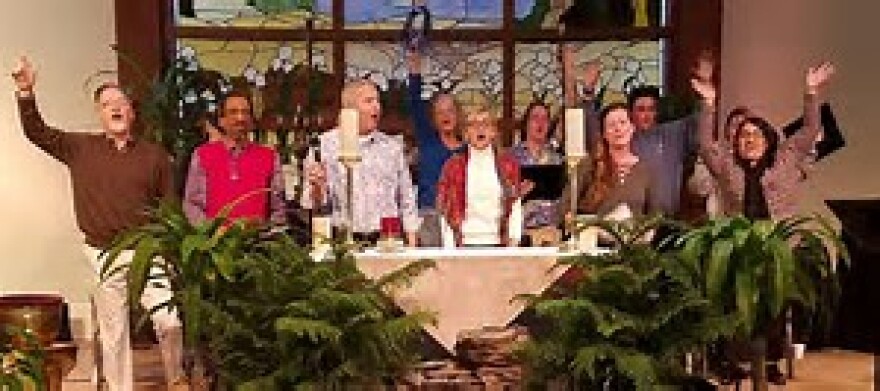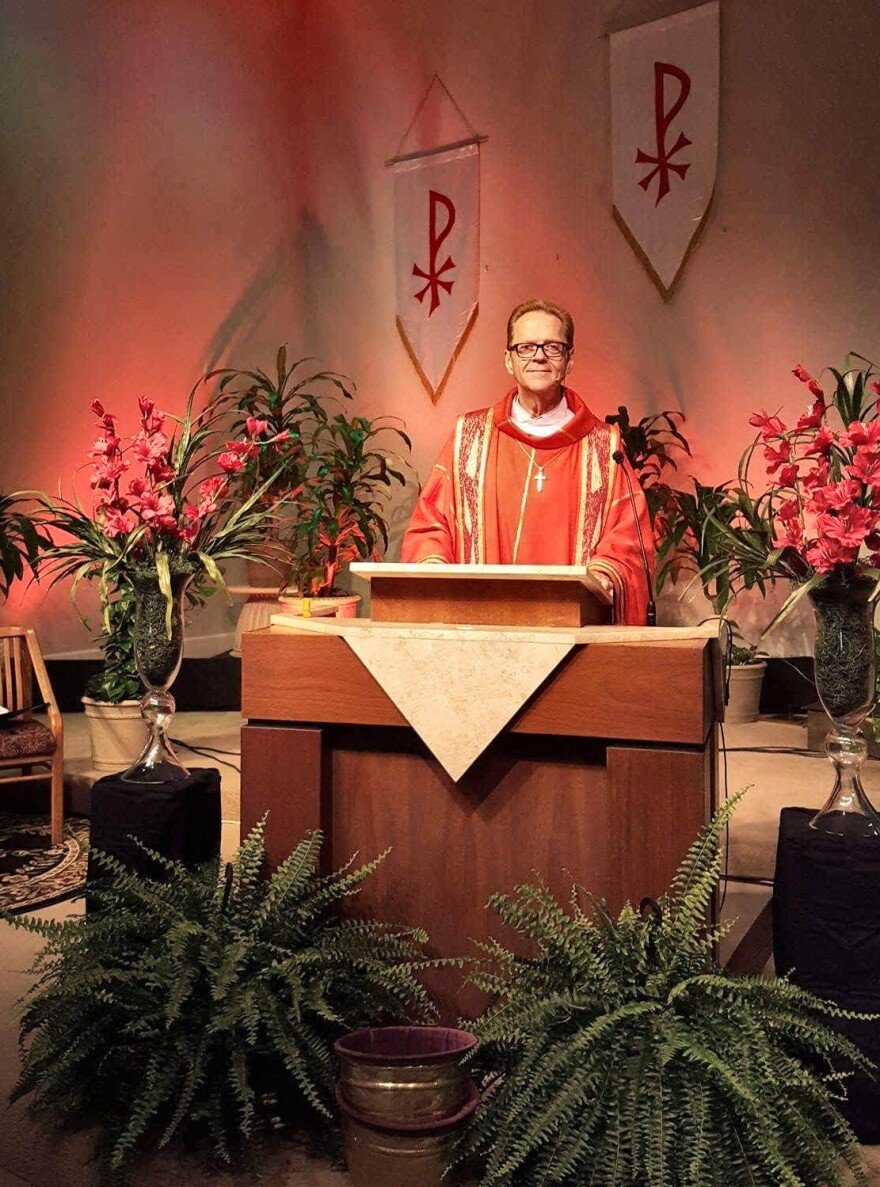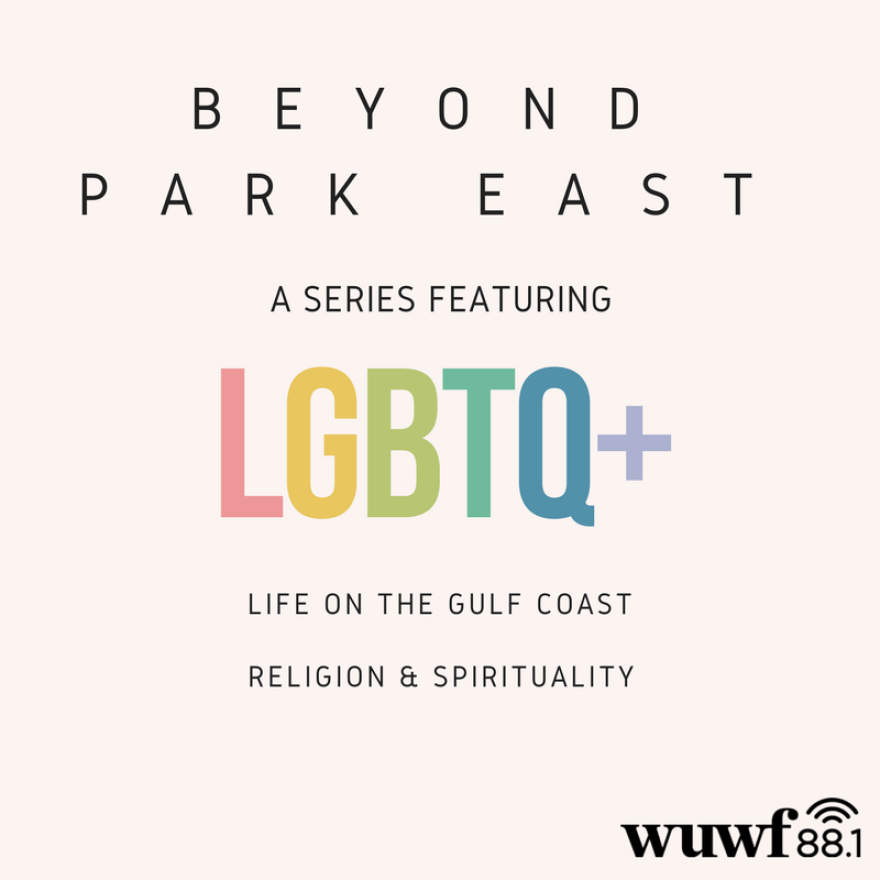In the fourth installment of “Beyond Park East,” we look at the spiritual side of Pensacola’s LGBT community.

On its website, Holy Cross Metropolitan Community Church in Pensacola is described as a Christ-centered church of inclusion, community, transformation, and justice, where the message is: everyone is loved, worthy, and welcome.
That runs contrary to the messages on homosexuality from some, including televangelist Pat Robertson on his program “The 700 Club.”
“The attitude is that this is sin; it’s wrong,” Robertson said. “I would think that it is somehow related to demonic possession.”
“When we grow up in churches like I did, they tell us that we’re not good enough; that we’re evil, that we’re bound for hell. That does serious psychological and internal damage,” said Rev. Jim Merritt, Holy Cross MCC’s Senior Pastor.
A native of Dothan, Alabama, was raised in Auburndale, Florida as a Southern Baptist and was ordained at the age of 18. He attended New Orleans Baptist Theological Seminary – until he was asked to leave.
“I preached a sermon in the preaching class on the church’s failure to respond to the HIV/AIDS crisis, which was relatively new in the 1980s,” said Merritt. “They used that as a reason to determine that I was gay and asked me to leave the seminary.”
Not only did he leave the seminary, but Merritt also gave up on religion, God, and the ministry. But, he says, God had other plans.

“When I met the founder of Metropolitan Community Church, Rev. Troy Perry, he kept telling me that ‘God has a place for you in our church,” said Merritt. “And one day I decided to listen.”
Merritt, who holds music and advanced divinity degrees, took over the reins at Holy Cross MCC in 2014. He says the level of welcome at so-called “mainstream” churches in Pensacola has improved, but remains a mixed bag.
“The unfortunate part, especially in our part of the country, is that even in the major denominations the welcome is regional,” Merritt said. “So if I’m in Boston and I want to go to a Baptist church, I’m probably pretty safe there. But if I come to Pensacola, I would question the level of welcome I would receive there.”
Relationships between religion and the LGBT community can vary greatly across time and geography, as well as among religions and sects, and even inside families.
“I’ve heard some really sorrowful things that happened to families because they’re torn apart over a child coming out as LGBT,” said Louis Cooper, President of Gay Grassroots of Northwest Florida. He says despite the progress made in changing attitudes over the past couple of decades, northwest Florida can still be a difficult place to be LGBT.
“There are several religious institutions that welcome LGBTs with open arms,” Cooper said. “But many LGBTs grow up in religious traditions that still look at homosexuality as a sin, that do not recognize same-sex relationships, and will still try to ‘pray the gay away.’”
Rev. Jim Merritt at Holy Cross MCC adds that it remains a very common experience for some people to misinterpret the Bible to condemn others. If he could meet with someone of that opinion, he would direct them to the Old Testament.
“Look at the Holiness Codes in Leviticus,” says Merritt. “It seems logical to me that we would live by the whole code, and not pull out just one or two verses. To me, that’s not a faithful interpretation of [Biblical] law; it’s not faithful to what God has in store for God’s people.”
Moving forward, Rev. Jim Merritt says the biggest challenge for him and other pastors is to help LGBTs heal from what he calls “acts of spiritual violence.”
“We are working very hard to be a safe place, not just for LGBT folks,” said Merritt. “We don’t even advertise ourselves as a ‘gay church’ anymore. We just say we’re the church where everybody is welcome.”
While the debate continues over the spiritual place occupied by the LGBT community, it appears many of them are staying in organized religion. In a Pew Research poll in 2015, 48 percent of lesbian, gay and bisexual Americans identify as Christian, up from 42 percent in 2013. In contrast, the survey showed Christianity losing ground in 2015, from 78 percent of Americans espousing that faith, to 71 percent.
In our final installment, it’s dollars and cents and the business of LGBT.

